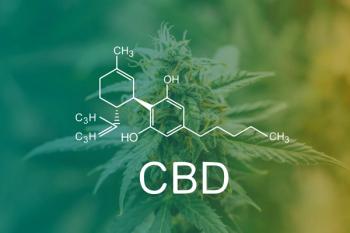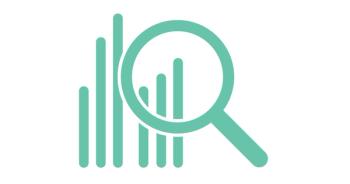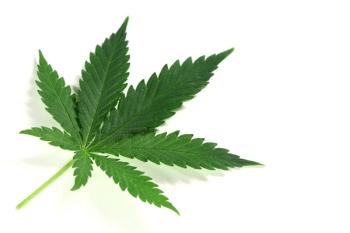
The 2017 Cannabis Science Conference Grows to New Levels
As I look around today, there is certainly no shortage of cannabis-related conferences and trade shows. Most of these shows, however, have a very similar look and feel, catering to a wide variety of cannabusinesses: everything from LED lighting companies and cannabidiol (CBD)-infused product providers to marketing businesses and cannabis security companies. These trade shows are a diverse mix of “everything cannabis,” and the oral presentations are just as eclectic.
Last year jCanna, Inc., hosted one of the “must attend” cannabis events, the Cannabis Science Conference in Portland, Oregon, and we broke the stereotypical cannabis conference mold. JCanna, Inc., a Maryland-based 501(c)3 devoted to advancing the science of cannabis, brought together analytical chemists, cannabis industry experts, medical doctors (and patients), and a superstar line-up of advanced technology companies. The seeds for this dream were planted more than three years ago when we set out to bridge the gaps between analytical science, medicine, and cannabis. In September 2016, those seeds not only began to grow, but also blossomed into one of the most inspiring and educational cannabis events of the year.
It is impossible to describe how the inaugural Cannabis Science Conference became the epicenter of an incredible synergy among all those passionate about advancing cannabis science. On the opening day of the Cannabis Science Conference, a scientific journey that started more than 8000 years ago and was abruptly halted about 70 years ago began to see a new light. Cannabis science, unjustifiably suppressed for seven decades, was the topic of discussion everywhere from the keynote presentations, roundtables, and panel discussions to the energetic exhibit hall and networking sessions. There was an air of enthusiasm and accomplishment as discussions turned from shared ideas into collaboration projects. Analytical chemists were learning from cannabis cultivators, processors, and dispensers, and vice versa. A century of stigma and misinformation suddenly shifted toward an alliance and affirmation of medical–analytical cannabis support. Cheers rang out from the audience in support of one medical doctor, Dr. Uma Dhanabalan of Uplifting Health and Wellness (Natick, Massachusetts), who set out to “educate, embrace, and empower” Cannabis Science Conference attendees. In short, the cannabis scientific revolution had begun.
From the sold-out, full day, hands-on “Canna Boot Camp” workshop that covered everything-cultivation, processing, sample preparation, edibles manufacturing, and quality control (QC) lab testing-to the exceptional lecture by Dr. Dedi Meiri of the Technion Israel Institution of Technology and educational keynotes by Tracy Ryan of CannaKids (Los Angeles, California) and Gordon Fagras of Trace Analytics (Spokane, Washington), it was clear that the goals of bridging gaps and advancing cannabis science were being realized. Partnerships, collaborations, and friendships were created at the 2016 Cannabis Science Conference.
This year we have not stopped innovating. For the 2017 Cannabis Science Conference, we have made impressive changes. We moved the event to the Oregon Convention Center, with more than 50,000 square-feet of meeting space for presentations and a 60,000-square-foot exhibition hall to accommodate more attendees and exhibitors. Our Canna Boot Camp has sold out for the second straight year, with more than 90 participants. Our team is working to expand the 2018 Canna Boot Camp to accommodate even more participants, since this workshop has been so popular. The scientific program has more than doubled to two parallel tracks-medical and analytical-along with technical poster sessions.
With a brief look at the agenda, one sees unique sessions and panel discussions, such as “The Doc and the Jocks Panel” in which Dr. Dhanabalan returns to moderate a medical discussion with several former professional athletes, including ex-NFL superstars. This year, television personality Montel Williams will provide a plenary address. We also created a “Cannabis Standards Panel,” a gathering of representatives from organizations that are actively working on standard methods for cannabis testing, including the American Oil Chemists’ Society (AOCS), the Association of Official Analytical Chemists (AOAC), the American Council of Independent Laboratories (ACIL), and the American Society for Testing and Materials (ASTM). Also added for 2017 is an “International Medical Cannabis Updates Panel” where panelists will discuss medical cannabis advances (and obstacles) around the world.
I am always quick to point out that while the level of technical presentations has definitely increased, we have also added many sessions where cannabis novices, and even curious patients, can learn about cannabis applications ranging from personalized nutrition and pediatric illnesses to pain in aged care and cancer. For more information on how the Cannabis Science Conference continues to grow and innovate, please visit our website,
Disclosures:
This interview was originally published in in the 2017 Cannabis Science Conference Final Program & Exhibitor Guide in partnership with LCGC and Spectroscopy magazines and Joshua Crossney of jCanna. The full program guide is available as an e-book here:
Newsletter
Unlock the latest breakthroughs in cannabis science—subscribe now to get expert insights, research, and industry updates delivered to your inbox.




